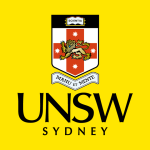Popular Topics
- AI/ML
- All About Universities
- Australia
- Canada
- Data Science / Analytics
- Denmark
- Dubai
- Environmental / Sustainability
- Finland
- France
- Germany
- Ireland
- Latest News
- Malaysia
- MBA/ Business
- Middle East
- New Zealand
- Poland
- Post Study & PR
- Program Selection
- Qatar
- Saudi Arabia
- Scholarships
- Spain
- STEM / Engineering
- Student Visa
- Study Destination
- Study Options By Subject
- Sweden
- Tests & Grades
- Thailand
- The Netherlands
- Travel, Stay, Culture Training
- UAE
- UK
- USA
Scholarships in Australia for Indian Students (2026)
- May 23, 2025
- 5 minutes

Many Indian students have Australia on their dream list, but few are aware of the abundant scholarships in Australia.
Yes! Offered by both the Australian government and individual universities, from tuition, living expenses, and travel costs, these scholarships cover all.
This comprehensive guide will help you discover:
Australian Government Scholarships
| Scholarship Name | Level of Study | Value of Scholarship | Eligibility Criteria | Application Deadline |
| Australia Awards Scholarships | Undergraduate, Postgraduate | Full tuition, airfare, living allowance, health cover | Indian citizens, meet academic and English proficiency requirements, not hold an Australian passport | April – May (Annually) |
| Endeavour Postgraduate Scholarship | Postgraduate (Masters & PhD) | Full tuition, travel allowance, establishment grant | First-class honors or equivalent, Indian citizen, not holding any other scholarship | April – June (Annually) |
University-Based Scholarships (Research & Postgraduate)
| Scholarship Name | University | Level of Study | Value of Scholarship | Eligibility Criteria | Application Deadline |
| University of Melbourne Graduate Research Scholarships | University of Melbourne | Research (Master’s, PhD) | Full tuition, stipend, relocation allowance | Excellent academic record, research-based study proposal, high English proficiency | October – November (Annually) |
| ANU College of Asia & the Pacific (CAP) Scholarships | Australian National University (ANU) | Postgraduate (Master’s/PhD) | Full tuition, living allowance, research support | Outstanding academic record, research proposal in Asia-Pacific studies | May (Annually) |
| Adelaide Scholarships International | University of Adelaide | Postgraduate (Research) | Full tuition, stipend, relocation allowance | Exceptional academic background, research-based postgraduate proposal | April (Annually) |
University-Based Scholarships (Undergraduate & Postgraduate)
| Scholarship Name | University | Level of Study | Value of Scholarship | Eligibility Criteria | Application Deadline |
| Monash University Scholarships for International Students | Monash University | Undergraduate, Postgraduate | Partial to full tuition fee waiver | Excellent academic performance, leadership potential, international student | October (Annually) |
| The University of Sydney International Scholarships | University of Sydney | Undergraduate, Postgraduate | Partial tuition fee coverage | High academic performance, strong English language skills, Indian citizen | October (Annually) |
| University of Queensland (UQ) International Scholarships | University of Queensland | Undergraduate, Postgraduate | Up to $10,000 tuition fee waiver | Indian citizens with strong academic qualifications, proof of English proficiency | February (Annually) |
| La Trobe University International Scholarships | La Trobe University | Undergraduate, Postgraduate | Up to $10,000 fee reduction | Excellent academic standing, must be an international student from India | November (Annually) |
Additional University Scholarships
| Scholarship Name | University | Level of Study | Value of Scholarship | Eligibility Criteria | Application Deadline |
| Deakin University Scholarships | Deakin University | Undergraduate, Postgraduate | Up to 100% tuition fee coverage | Indian citizens, academic excellence, meet English proficiency requirements | May (Annually) |
| International Student Scholarships (RMIT University) | RMIT University | Undergraduate, Postgraduate | Up to 20% fee waiver | Must be an international student, have high academic performance | February, June (Annually) |
| Macquarie University Scholarships for International Students | Macquarie University | Undergraduate, Postgraduate | Up to 50% tuition fee coverage | Indian citizen, excellent academic qualifications, strong English skills | April (Annually) |
| University of Tasmania Scholarships | University of Tasmania | Undergraduate, Postgraduate | Up to 25% tuition fee reduction | Academic excellence, strong English proficiency, Indian citizen | May (Annually) |
How Much Can You Actually Receive From Scholarships in Australia?
Here’s a general overview of how much funding you can expect from scholarships opportunities in Australia:
Scholarship Amounts by Level of Study
- Undergraduate: AUD 10,000–40,000 per year (INR 5–20 Lakh)
- Postgraduate: AUD 15,000–50,000 per year (INR 7.5–25 Lakh)
- Doctoral/Research: Full funding + living stipend + research support (AUD 35,000–50,000+ per year)
Additional Benefits of Scholarship Opportunities in Australia
Some scholarships also cover other costs, making studying in Australia more affordable:
- Return Airfare – Many scholarships for international students include return airfare or reimbursement for travel expenses.
- Housing Allowance – Some scholarships offer a housing stipend or full accommodation support.
- Monthly Stipend – A monthly stipend may be provided to cover living expenses, including food and transport.
- Visa Reimbursement – Certain scholarships include the cost of visa application or reimbursement.
Are You Eligible For Scholarships in Australia?
Eligibility for scholarships in Australia depends on the type of scholarship, but here are some common requirements:
| Eligibility Criteria | Details |
|---|---|
| Strong Academic Record | Typically, scholarships require a minimum academic performance (usually 75–90% for merit-based scholarships). |
| Acceptance or Enrollment in an Australian University | Most scholarships require that you have been accepted into or are currently enrolled in an Australian institution. |
| English Language Proficiency | Most scholarships require proof of English proficiency through IELTS, TOEFL, or other accepted exams. |
| Personal Statement or Essay | Many scholarships require a well-written statement of purpose (SOP) or personal essay outlining your goals, academic interests, and why you deserve the scholarship. |
| Letters of Recommendation | You will often need at least two letters of recommendation from teachers or academic mentors. |
| Research Proposal (for PhD Scholarships) | If applying for a research-based program, you’ll typically need to submit a detailed research proposal. |
| Documented Financial Need (for need-based scholarships) | Some scholarships are need-based and require proof of financial need. |
| Citizenship | Scholarships are generally open to international students, including Indian citizens, though some may prioritize students from specific countries or regions. |
Need Personalized Help For Scholarships in Australia?
Don’t do it alone. The scholarship process can be complex, but with expert guidance from platforms like Admitix, you can boost your chances of success.
Book a free session with an advisor today and take the first step towards studying in Australia.
FAQs – Scholarships in Australia
1. Are scholarships in Australia open to Indian students?
Yes, most scholarships are open to Indian students.2. How much funding can I expect from a scholarship in Australia?
Undergraduate scholarships: AUD 10,000–40,000/year; Postgraduate: AUD 15,000–50,000/year; Doctoral: Full funding + living allowance.3. What are the basic eligibility requirements for scholarships?
Strong academics (75–90%), English proficiency (IELTS/TOEFL), and a statement of purpose.4. Do I need to be admitted to a university before applying for a scholarship?
Yes, most scholarships require an offer of admission.5. When should I start applying for scholarships?
Start 8–12 months before your intended intake.



